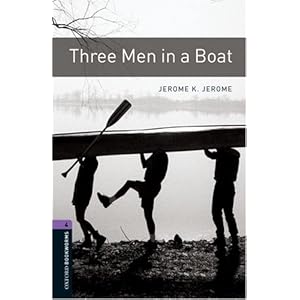During a sociable evening in J.’s room, the three men convince themselves that they each have various illnesses. Their collective diagnosis is overwork, and they prescribe themselves a fortnight’s holiday. A stay in the country and a sea voyage are both ruled out, and they settle instead on a boating trip, travelling on the Thames by day and camping out in the hired boat at night.
They set out the following Saturday. George must work in the City in the morning, and so arranges to join them later that day. The other two, accompanied by the dog and a mountain of luggage, get a cab to Waterloo station, but are unable to find the correct train to Kingston. Eventually they bribe the driver of another train to take them there instead, one of the many humorous set-pieces that make the book more than a straightforward travelogue. George completes the trio at Weybridge, with a dubious-looking parcel tucked under his arm, which turns out to be a banjo and instruction book.
The story is a tapestry of incidents that occur, anecdotes on various topics (including the unreliability of weather forecasts), loosely connected digressions (such as J.'s uncle’s inability to hang pictures), and descriptive pieces on the places that they pass. It is in these descriptive pieces that the author’s original intention of writing a guidebook is most apparent. What he actually achieved was a classic of British humorous writing. Although the book was written over a century ago, it has an enduring, timeless quality.
You can also watch the film.
Source: Book Drum

No comments:
Post a Comment